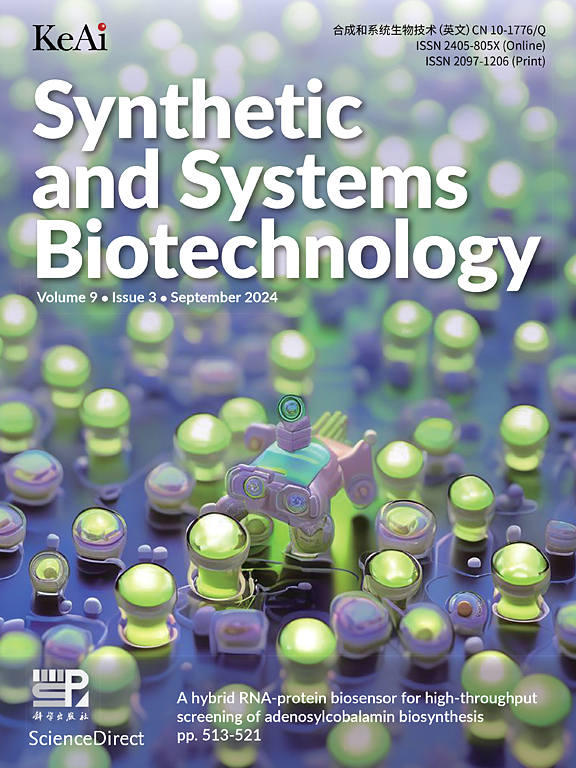改造转录调控网络,提高酿酒酵母的第二代燃料乙醇产量
IF 4.4
2区 生物学
Q1 BIOTECHNOLOGY & APPLIED MICROBIOLOGY
引用次数: 0
摘要
目前,酿酒酵母能熟练地同时发酵葡萄糖和木糖,这标志着第二代燃料乙醇生产取得了重大进展。然而,工业木质纤维素水解物中存在的高浓度抑制剂以及葡萄糖消耗引起的后葡萄糖效应严重阻碍了酵母的生长和利用木糖发酵乙醇。更为严重的是,木糖利用能力与菌株的稳健性之间存在拮抗作用,这为利用酿酒酵母生产第二代燃料乙醇提出了艰巨的挑战。本综述介绍了转录调控网络工程对提高木糖利用率、改善菌株稳健性、缓解木糖利用率与菌株稳健性之间的拮抗作用以及降低葡萄糖后效应的影响。此外,我们还对这一领域的发展趋势进行了展望,为提高 S. cerevisiae 第二代燃料乙醇产量的未来方向提供了见解。本文章由计算机程序翻译,如有差异,请以英文原文为准。
Engineering transcriptional regulatory networks for improving second-generation fuel ethanol production in Saccharomyces cerevisiae
Presently, Saccharomyces cerevisiae demonstrates proficient co-fermentation of glucose and xylose, marking a significant advancement in second-generation fuel ethanol production. However, the presence of high concentrations of inhibitors in industrial lignocellulose hydrolysates and post-glucose effect caused by glucose consumption hinders severely impedes yeast robustness and xylose utilization for ethanol fermentation. Even worse, the antagonism between xylose utilization ability and strain robustness was observed, which proposes a difficult challenge in the production of second-generation fuel ethanol by S. cerevisiae. This review introduces the effect of engineering transcriptional regulatory networks on enhancing xylose utilization, improving strain robustness, alleviating antagonism between xylose utilization and strain robustness, and reducing post-glucose effect. Additionally, we provide an outlook on the developmental trends in this field, offering insights into future directions for increasing the production of second-generation fuel ethanol in S. cerevisiae.
求助全文
通过发布文献求助,成功后即可免费获取论文全文。
去求助
来源期刊

Synthetic and Systems Biotechnology
BIOTECHNOLOGY & APPLIED MICROBIOLOGY-
CiteScore
6.90
自引率
12.50%
发文量
90
审稿时长
67 days
期刊介绍:
Synthetic and Systems Biotechnology aims to promote the communication of original research in synthetic and systems biology, with strong emphasis on applications towards biotechnology. This journal is a quarterly peer-reviewed journal led by Editor-in-Chief Lixin Zhang. The journal publishes high-quality research; focusing on integrative approaches to enable the understanding and design of biological systems, and research to develop the application of systems and synthetic biology to natural systems. This journal will publish Articles, Short notes, Methods, Mini Reviews, Commentary and Conference reviews.
 求助内容:
求助内容: 应助结果提醒方式:
应助结果提醒方式:


